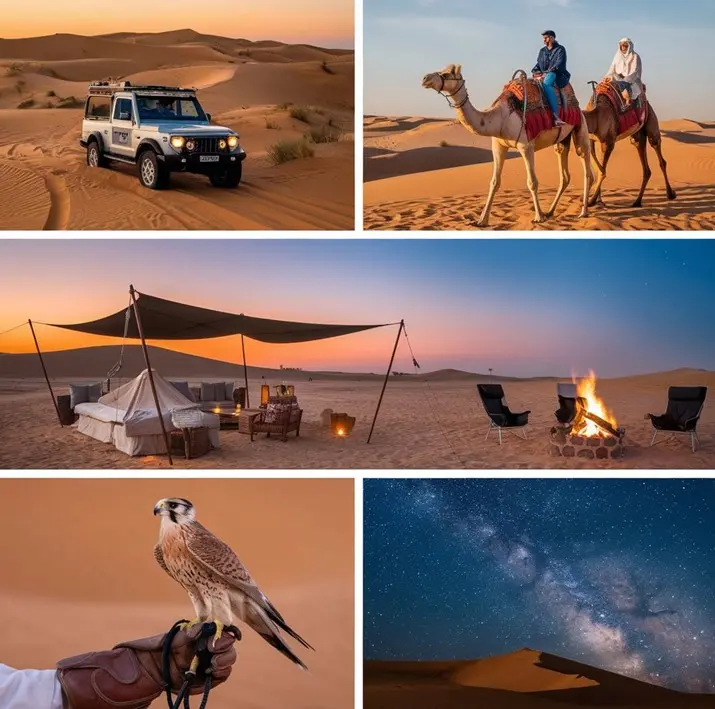The Desert Safari Dubai is iconic for tourists all over the globe. The safari offers an unforgettable adventure ranging from adrenaline-fueled dune bashing to belly dancing beneath the stars. But like everything else, the desert safari has its pros and cons. Their growing popularity carries an environmental concern. In recent years– and much to our surprise, a new trend has emerged describing this issue as eco-friendly desert tourism. Today, we’re going to deep dive how sustainable practices are infiltrating the fertile golden dunes of Dubai.
What Does Sustainability Mean in the Desert?
It is well-known that Deserts could be some of the most fragile ecosystems. Sand, air, and wildlife can be disrupted by activities of humans or change in the climate. For instance, hundreds of 4×4 vehicles cruising through the dunes every day create a host of issues such as – erosion of soil, noise pollution, and disturbances for housing birds like desert foxes, oryx, and falcons. Some companies providing tours seemed to care and are trying to tackle these issues head on. They are now offering what they call eco-aware desert experiences, meaning they prioritize environmental preservation. Read More: Abu Dhabi City Tour
How Are Eco-Friendly Safaris Making a Difference?
1. Solar-Powered Desert Camps
In traditional camps, a huge amount of carbon emissions is produced as power is drawn from diesel generators. Unlike these camps, eco-safari operators have begun installing solar panels to power their camps, lighting, and even kitchen equipment which significantly reduces their carbon footprint.
2. Wildlife-Friendly Practices
Responsible safari operators lecture tourists on local wildlife and nest zone conservation. Many of these operators do not drive through known wildlife nesting zones and some even collaborate with wildlife conservation organizations to promote biodiversity in deserts.
3. Reusable and Zero-Waste Policies
Remote desert regions have been suffering from plastic wastage. Eco-friendly safaris are addressing this problem as they now offer reusable water bottles and bamboo cutlery. Some companies take it a step further by encouraging waste segregation at camps and supplying biodegradable toiletries in their restrooms.
4. Cultural Integrity & Bedouin Partnerships
Many eco-tours go as far as engaging real Bedouin tribes instead of performers for fabricated shows. They teach tourists about the sustainability of desert survival, cooking, and camel maintenance, thus aiding in the preservation of genuine Emirati culture. Read More: Riyadh AC Repair
5. Options for Transport with Lower Emissions
Some tours can now provide electric or hybrid off-road vehicles, and while traditional dune bashing is still offered, others place more focus on camel rides or walking tours at dawn and dusk, which lowers emissions and enhances the experience.
What Motivates Tourists to Opt for Sustainable Safari Options?
Going for an eco-friendly safari is not “going green” in the most literal sense. It is also allowing the magic of the desert – its silence, wildlife, and culture – to be preserved for the coming generations. This type of safari allows people to feel more connected to the land, understanding it rather than looking at it as a playground but as a living organism that needs respect.
Conclusion: The Future of Exploring the Desert is Sustainability
The desert does not need to suffer because of tourism. Dubai is constantly pushing innovations in sustainability so eco-friendly desert safari provide the perfect balance of luxury, culture, and conservation. So, next time you plan this kind of adventure, ask yourself, can the excitement help the environment?
Also Read-Learn the Collective noun for Wildlife
